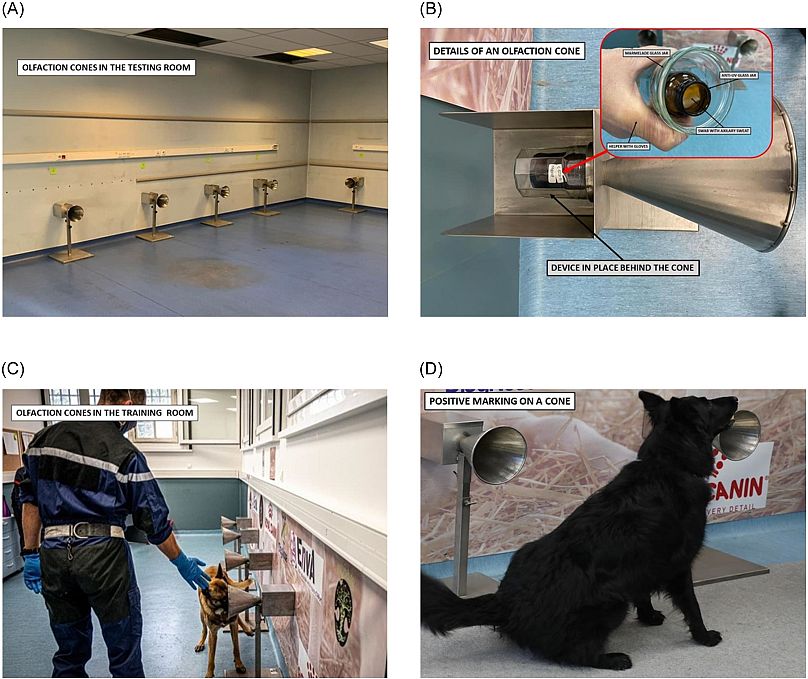With their superior sense of smell, our canine friends were found to be as reliable as PCR tests for detecting COVID-19 cases among hundreds of people.
Dogs may be even better at detecting COVID-19 cases than laboratory tests, a new study has found.
 ADVERTISEMENT
ADVERTISEMENT
 ADVERTISEMENT
ADVERTISEMENT
With their superior sense of smell, our canine friends were found to be as reliable as PCR tests for detecting COVID-19 cases among hundreds of people.
And when it came to asymptomatic coronavirus infections, the dogs spotted all the cases - faring better than either PCR or antigen tests.
The findings, published this week in the journal PLOS One, could have implications for testing in public places in the future, as using dogs to screen for coronavirus infection would be much less invasive than mass swabbing.
“The dog doesn’t lie,” Dominique Grandjean, a veterinarian at the National School of Veterinary Medicine of Alfort in France, and an author of the study, told Science News.
On the other hand, he noted, many things can go wrong with PCR tests.
In the study, involving sweat samples from 335 people, trained dogs sniffed out 97 per cent of the coronavirus cases that had been identified by PCR tests, and all 31 COVID-19 cases among 192 people who didn’t have symptoms.
While dogs’ sensitivity exceeded that of PCR and antigen tests for detecting asymptomatic cases, their specificity was slightly worse, with the researchers finding they sometimes mistook another respiratory virus for the coronavirus.
How the dogs were trained to sniff out COVID
For the study, dogs belonging to French fire departments and the interior ministry of the United Arab Emirates were trained to detect coronavirus.
The team did this by rewarding them with toys when they correctly identified a positive sample.
It took three to six weeks to train most of the dogs to pick out COVID-19 cases from sweat samples.
The dogs were then sent to put their new skills to the test by sniffing samples of human sweat and saliva placed in olfaction cones, some of which had negative samples in them.
The dogs would be taken to sniff the cones, and would sit down when they smelled a positive sample.
The researchers said in their paper that “canine testing is non-invasive and provides immediate and reliable results”, and that further studies will focus on evaluating sniffer dogs for mass pre-test in travel hubs such as airports and railways, as well as cultural and sporting events.
What are the dogs actually smelling?
Dogs have been in training to pick out COVID-19 cases since the early stages of the pandemic.
One charity - Medical Detection Dogs - started putting their resources towards coronavirus detection as early as April 2020.
Dr Claire Guest, the charity’s CEO, at the time compared the process to that of training a sommelier.
"First of all you learn the region of the grape, the disease. As you get more and more complicated you could even pick out the individual vine and that’s the detection of the virus, that’s complex discrimination,” she said.
"Once you've gotten to that point, a dog could walk up to an individual who’s giving out the odour of a virus and the dog could be trained to sit in front of them and say this person has in fact got the virus, even if they’re asymptomatic”.
Grandjean is unsure why there is still some reluctance on the part of some doctors and officials to use dogs for COVID detection, despite studies such as his showing how skilled they can be at detecting diseases, including cancer.
“Every time you take a plane, it’s because dogs have been sniffing your luggage [and found] no explosives. So you trust them when you take a plane, but you don’t want to trust them for COVID?” he told Science News.











